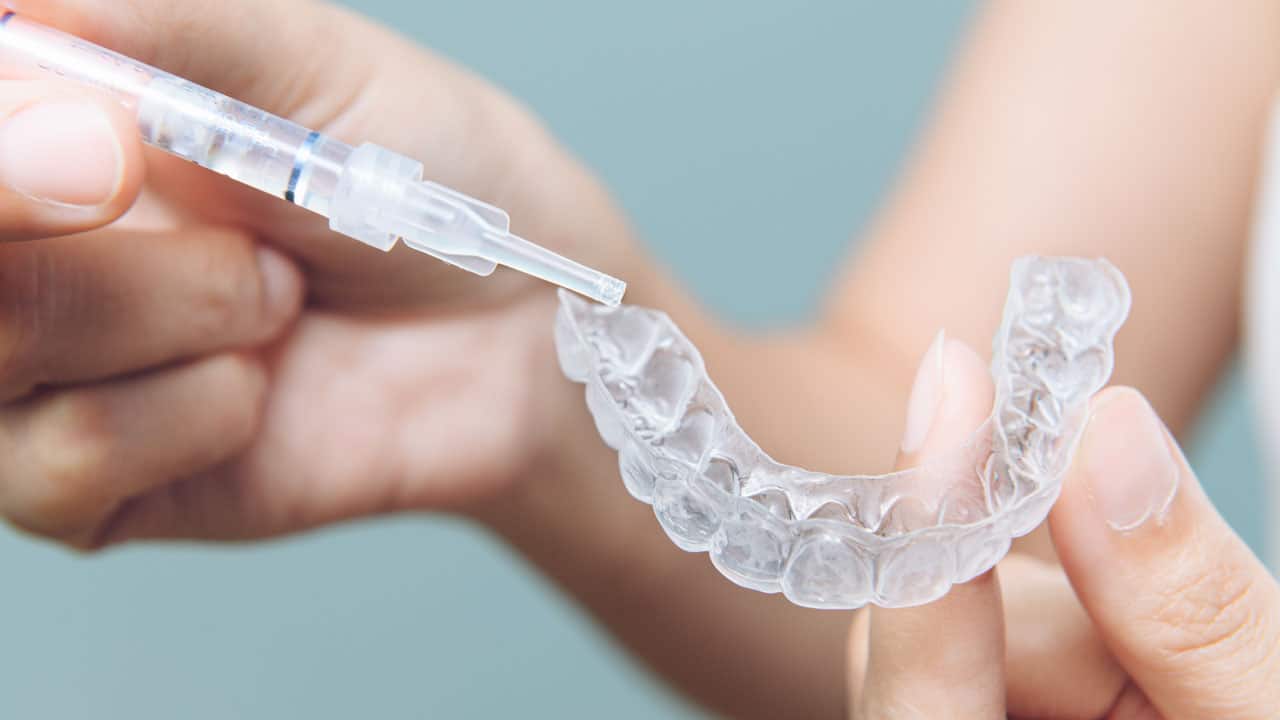6 Facts About Teeth Whitening You Should Know

A bright, white smile is often associated with good health, youthfulness, and confidence. As a result, teeth whitening has become the most popular cosmetic dental procedure available, accounting for 32% of procedures performed at in-office practices.
However, while many people may be interested in teeth whitening, there are important facts to be aware of before treatment. From understanding who is a good candidate for teeth whitening to knowing the limitations of the treatment and the importance of working with a qualified professional, there are several critical points to consider.
1. Teeth Whitening Isn’t for Everyone
Teeth whitening is a cosmetic dental procedure that can improve the appearance of discolored or stained teeth, but it is not suitable for everyone. For example, people with intrinsic strains may require treatment with veneers because bleaching agents cannot change discoloration due to medication or trauma.
Individuals with worn enamel, exposed roots, or sensitive teeth should also avoid teeth whitening treatments as they can worsen these conditions.
It is essential to consult with a dental professional to evaluate your oral health and determine if teeth whitening is a safe and appropriate option for you.
2. Sensitivity After Teeth Whitening is Normal
It is normal to experience sensitivity after teeth whitening treatments. The sensitivity occurs because the peroxide-based whitening agents penetrate the enamel to bleach the underlying dentin layer, which contains nerve endings. This can cause temporary sensitivity to hot, cold, or sweet foods and drinks.
However, the sensitivity usually subsides after a few days. Patients can use desensitizing toothpaste or gel to minimize discomfort and avoid consuming hot, cold, or acidic foods and drinks.
3. Crowns, Implants, and Veneers Cannot Be Whitened
Crowns, implants, and veneers are dental restorations made of materials like porcelain or composite that do not respond to teeth whitening treatments. Unlike natural teeth, these restorations do not have pores or surface stains that whitening agents can break down.
So, if you have dental restorations, they will not lighten in color like your natural teeth during a whitening treatment, which may result in a patchy smile. In some cases, dental professionals may recommend replacing them to match the new color of your natural teeth.
4. Custom-fitted trays are Critical if You are Whitening Your Teeth at Home
Custom-fitted trays are crucial for achieving safe and effective results when it comes to teeth whitening at home. These trays are designed to fit your teeth precisely, ensuring that the whitening gel reaches every tooth evenly without spilling onto the gums, which could cause irritation or damage.
At-home teeth whitening treatments provided by a dental professional include custom-fitted trays, making the process much more comfortable and effective than using over-the-counter products.
Additionally, with professional at-home teeth whitening services, dental professionals can monitor your progress, make necessary adjustments to treatment and bleach concentration, and provide support and guidance throughout the process to ensure optimal results.
5. Always Work With a Qualified Professional
Work with a qualified dental professional for the best and safest teeth whitening results. Dental professionals can evaluate your oral health and recommend the most appropriate teeth whitening treatment for your specific needs. In-chair teeth whitening provided by a dental professional is considered one of the safest and most effective teeth whitening options available.
In-chair teeth whitening treatments use a higher concentration of whitening agents and are completed in a controlled environment, reducing the risk of complications such as sensitivity or gum irritation.
6. Teeth Whitening isn’t Permanent
Professional teeth whitening is a popular cosmetic dental procedure that can produce noticeable results. However, teeth whitening is not a permanent solution for tooth discoloration.
Because tooth enamel is porous, teeth may become stained again over time due to consuming pigmented food, smoking, or taking medications.
To maintain a whiter smile, you may need to undergo periodic touch-up treatments or adjust lifestyle habits that can contribute to tooth discoloration.
Transform Your Smile Today
With a team of experienced and skilled professionals, Hinsdale Dental offers a wide range of dental services to meet the needs of patients of all ages. From routine cleaning and check-ups to advanced restorative and cosmetic procedures, Hinsdale Dental has the expertise and technology to help patients achieve optimal oral health and a beautiful smile.
Whether seeking preventive care or needing more extensive dental treatment, Hinsdale Dental is committed to providing personalized, compassionate care that meets your unique needs and goals. Schedule an appointment with Hinsdale Dental today.
Return to Blog